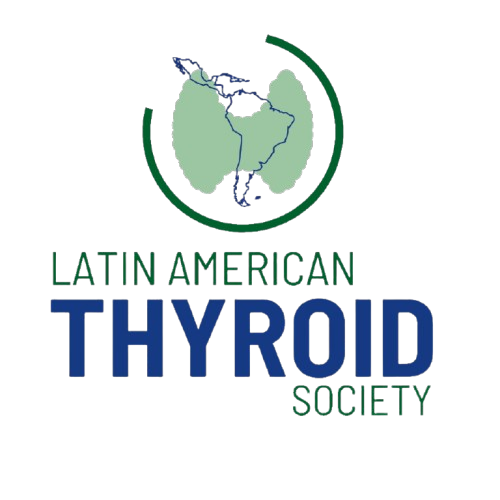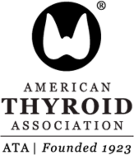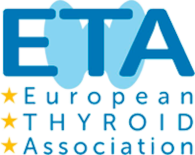The 89th Annual Meeting of the American Thyroid Association (ATA) is now behind us, but it has imprinted some powerful themes: equity, diversity, mentorship. As I reflect on the events that transpired, it is obvious that the enhancement, inclusion, and engagement of trainees and early career professionals was forefront and center. It was only a few years ago that I started going to the ATA meetings as a trainee myself. For several decades the ATA has been perfecting the experience, and providing the next generation of young clinicians and scientists in thyroidology with robust education resources and training initiatives (such as the E. Chester Ridgway Conference), interaction with thyroid experts, grant support, and, more recently, committee involvement. These opportunities for trainees and early career professionals undoubtedly have a lasting impact on their work and careers, as I can attest from my personal experience.
As I walked around the trainee poster contest session, I was impressed by the quality of research undertaken by these budding thyroidologists. I would like to highlight a few of their studies here. Kimberly L. Yan, BS, presented the “Rising incidence and incidence-based mortality of thyroid cancer in California, 2000-2017.” Yan and colleagues from the David Geffen School of Medicine at the University of California in Los Angeles (UCLA) conducted a retrospective analysis using the California Cancer Registry to identify temporal changes in thyroid cancer incidence and incidence-based mortality. They found that incidence of thyroid cancer is increasing (not restricted to indolent, smaller papillary thyroid cancers) and incidence-based mortality increased in men and those with larger tumors. She received the 1st prize for the Trainee Poster Contest. The 2nd prize went to Carol Chiung-Hui Peng, MD, from the University of Maryland. She and colleagues conducted a meta-analysis of 27 cohort studies and concluded that hypothyroidism in older adults was significantly associated with increased all-cause mortality, but not cardiovascular mortality, compared to euthyroidism. Other interesting studies that were selected as finalists for the Ridgeway Trainee Poster Contest included: “The potential markers involved in newly diagnosed Graves’ disease and the development of active Graves’ ophthalmopathy by MY Wang, MD, from the First Affiliated Hospital of Xi’an JaoTong University; “Disparities in the overestimation of thyroid cancer risk of recurrence and death” by Debbie Chen, MD, from the University of Michigan; “Prevalence of laboratory thyroid dysfunction prior to first dispense of levothyroxine” by Philip G. Clerc, MD, from the Brooke Army Medical Center. There were many other deserving studies articulately presented by trainees which received notable praise.
Another part of the meeting that shed the spotlight on trainees was the oral abstract sessions. Megan Kristan, MD, a first-year endocrinology fellow from Georgetown University, presented a study that aimed to examine treatment for immunotherapy-induced thyroiditis/hypothyroidism and provide guidance on the management of these adverse events. This was a retrospective cohort chart review of 822 patients who received treatment with immunotherapy between 2010-2018 within a large, multicenter hospital system. Dr. Kristan and colleagues found that in patients who developed de novo thyroiditis, a more conservative approach should be taken in regards to thyroid hormone replacement, compared to those with pre-existing hypothyroidism.
Elizabeth Lancaster, MD, a general surgery resident and research fellow at UCLA, presented an oral session on national trends and outcomes from thyroidectomy performed for thyroid cancer via alternative access techniques. The study analyzed data from 216,520 adult patients recorded in the National Cancer Database that underwent thyroidectomy for thyroid cancer from 2010-2016. The investigators found that the number of alternative access thyroidectomy procedures (endoscopic, robotic) increased linearly from 2010 to 2016. In multivariable analyses, there was no significant difference in positive surgical margins, readmission, and early mortality between groups, but patients who underwent thyroidectomy via alternative access procedures were more likely to have hospital length of stay more than one day.
In the end, success of early career professionals and trainees cannot be achieved without exemplary mentorship. It is not surprising that Dr. Martha Zeiger, the incoming president of the American Thyroid Association, received the Lewis E. Braverman Distinguished Award for her excellence and passion for mentoring fellows, residents, students and junior faculty. She delivered a lecture on: “From Mentee to Mentor …What I Have Learned in 25 Years”. She spoke about the rewards of a positive mentoring experience for both the mentor and the mentee, including, but not limited to, exchange of knowledge, shared experiences and professional growth. As she eloquently put it: “Believe in your mentee, meet them where they are (get them English lessons), learn from them (learn computers), empower them (give them your credit card), celebrate them!”
Illustration by Jennifer Bogartz






